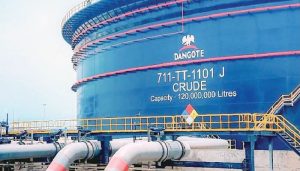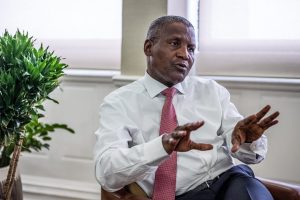Dangote Refinery Ended 50 Years of Fuel Scarcity, Saves Nigeria $1bn in Annual Demurrage

Aliko Dangote is not a man of small claims, but when Africa’s richest man declared that his $20 billion refinery has ended 50 years of Nigeria’s fuel scarcity, the statement carried weight far beyond the business pages. It marked a turning point in a country where queues at petrol stations have long been as much a part of national life as football or politics.

The Dangote Refinery, sitting on 2,635 hectares in Lagos’ Lekki Free Zone, is not just a private venture, it is a national symbol of self-sufficiency, industrial ambition and the promise of economic relief. According to Dangote, the project is already saving Nigeria about $1 billion annually in demurrage costs. The penalties ships incur when cargo is delayed in ports due to insufficient refining capacity or logistical bottlenecks.
In decades, Nigeria, the continent’s top oil producer, has paradoxically depended on imports to meet domestic fuel demand, draining scarce foreign reserves and subjecting millions of citizens to volatile pump prices. Dangote’s refinery, designed to process 650,000 barrels of crude oil per day, aims to flip that equation by supplying not just local demand but also exports across Africa.
Dangote said “from 2026, we have been targeting $500 million annually in cement exports,” tying the refinery’s fortunes to his conglomerate’s broader push to dominate African industrial markets.
Analysts say the refinery’s full operations could ease Nigeria’s chronic dollar shortages, strengthen the naira and cut energy costs for manufacturers, a development with ripple effects across jobs, inflation and household purchasing power.
To ordinary Nigerians, the refinery is not just an engineering marvel; it’s a potential relief from the hardship of endless fuel queues, black-market price hikes and power outages caused by unreliable supply chains. In a country where inflation hovers in double digits and over 40% of people live below the poverty line, stabilizing fuel access could free up household incomes for food, education, and healthcare.
The project has also created thousands of construction jobs and promises long-term opportunities in logistics, retail and engineering. Yet, critics point out that many of these benefits remain promises until the refinery achieves consistent full-scale output. A milestone still being closely watched.
Politically, the refinery’s success is a test of Nigeria’s ability to harness private capital for public good. Successive governments had pledged to revive moribund state-owned refineries in Port Harcourt, Warri, and Kaduna but failed, costing the country billions in subsidies and imports.

President Bola Tinubu, who took office in 2023 with a bold agenda of subsidy removal and economic reforms, has seized on Dangote’s refinery as a proof point for his “Renewed Hope” mantra. However, the refinery’s dominance also raises questions about market competition and regulation, whether Nigeria risks replacing a government monopoly with a private one.
On the continental stage, the refinery could make Nigeria a net exporter of refined products for the first time in decades, reshaping trade flows across West and Central Africa. Globally, it positions Africa as less dependent on European and Asian refiners, while giving Nigeria leverage in OPEC+ negotiations by changing the balance of crude exports versus refined product sales.
Despite the optimism, hurdles remain: securing steady crude supply from Nigerian producers, ensuring transparent pricing, and navigating the politics of deregulation. The refinery’s ability to deliver consistently at scale will determine whether Dangote’s bold claims translate into sustainable relief for households and industries.
But for now, Nigerians are daring to hope. A nation that had long been haunted by the irony of oil wealth without fuel. The refinery represents more than a business deal. It is a social contract, a political litmus test and perhaps the clearest signal yet that Africa’s largest economy is serious about rewriting its energy story.






